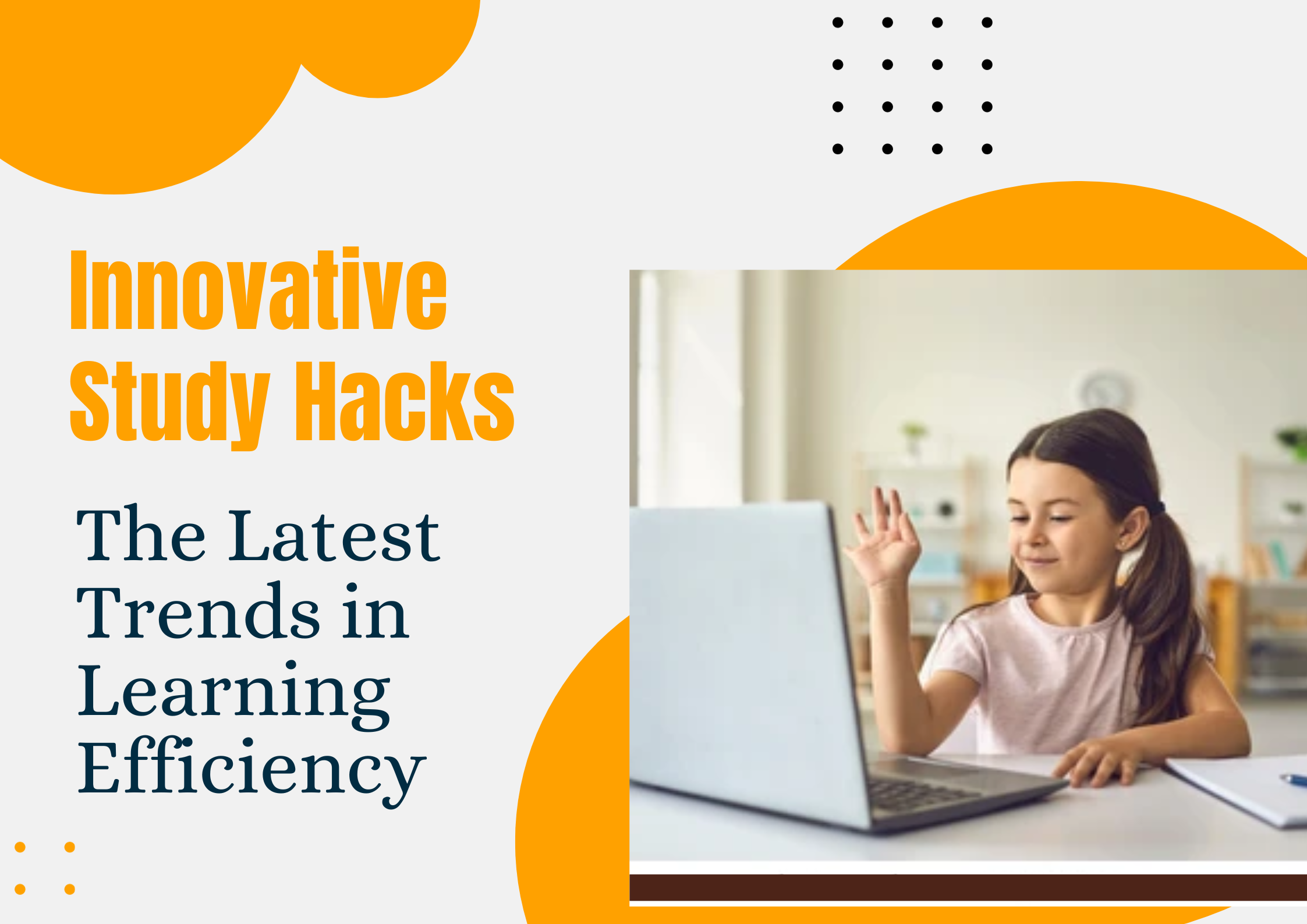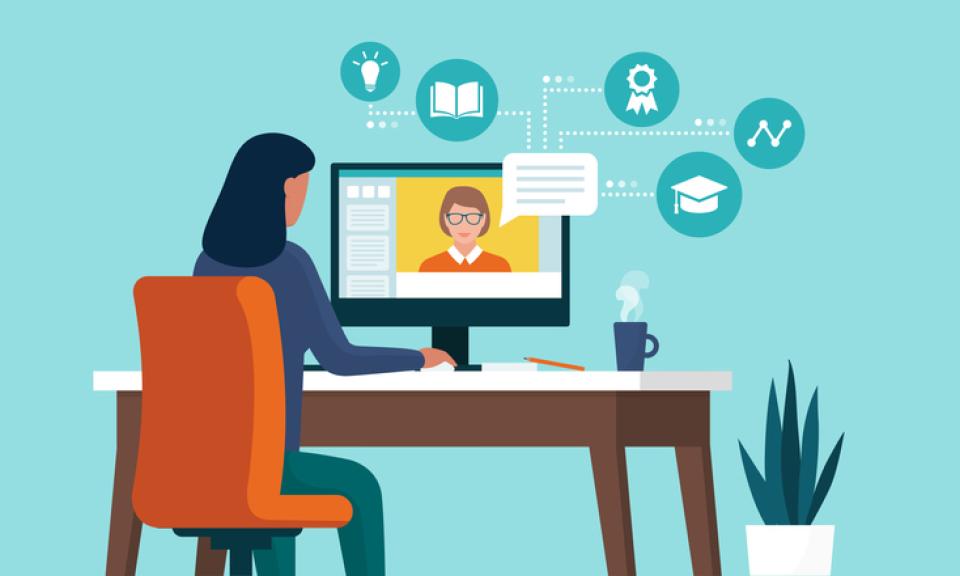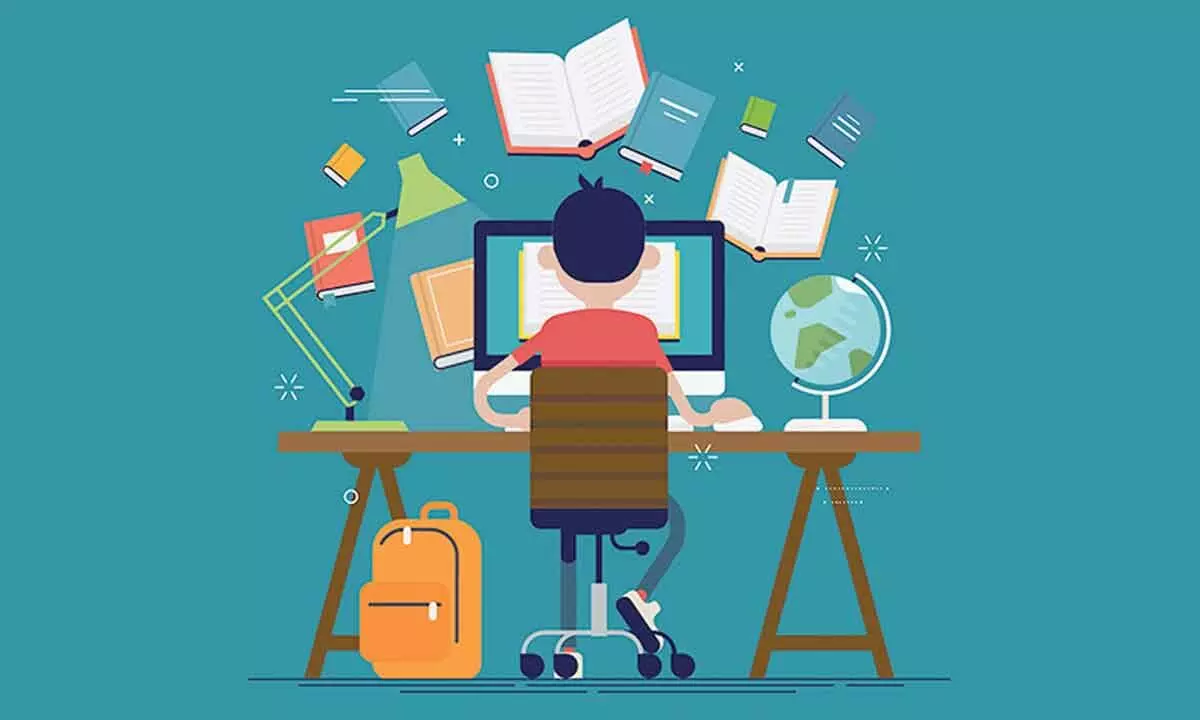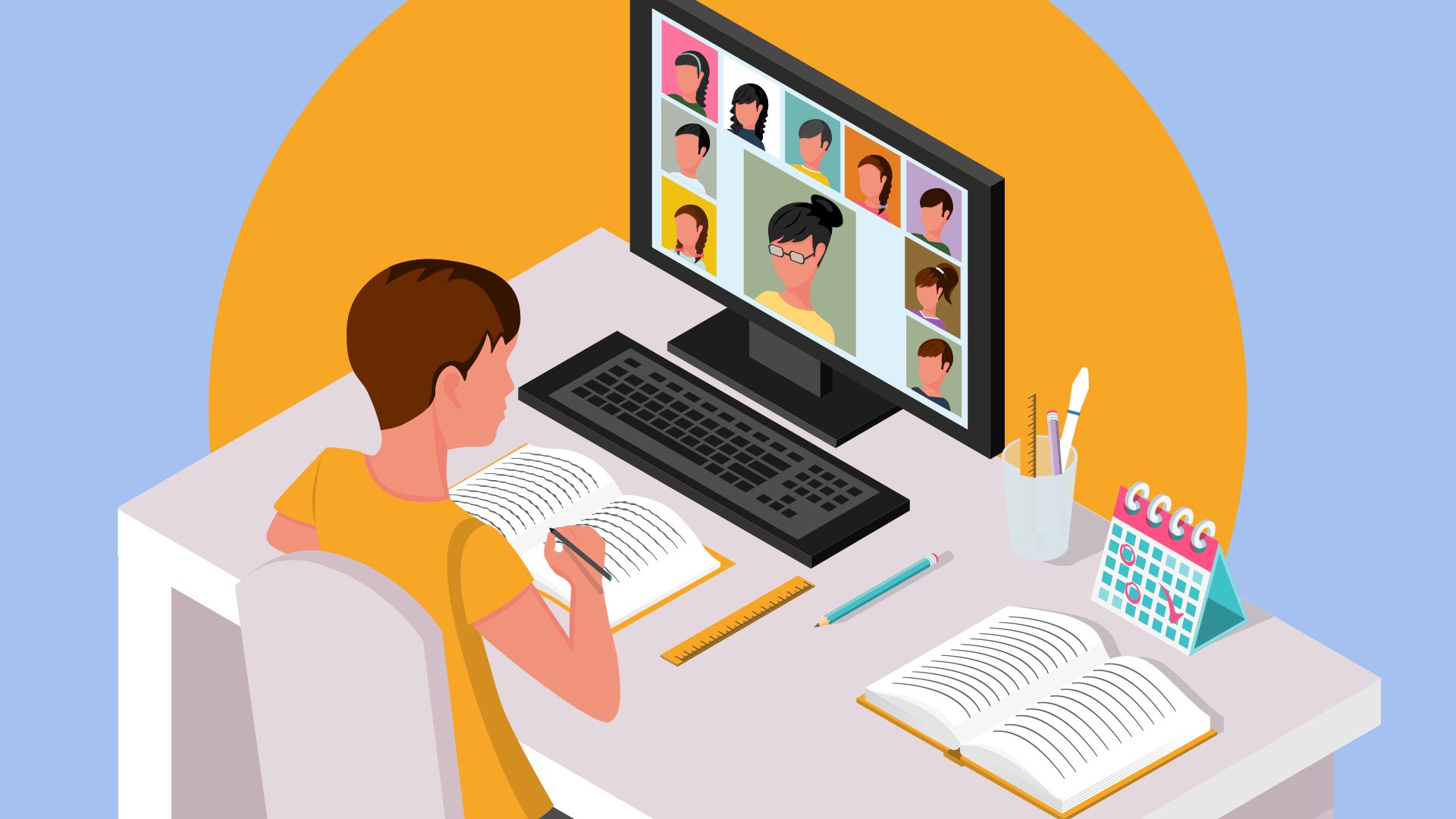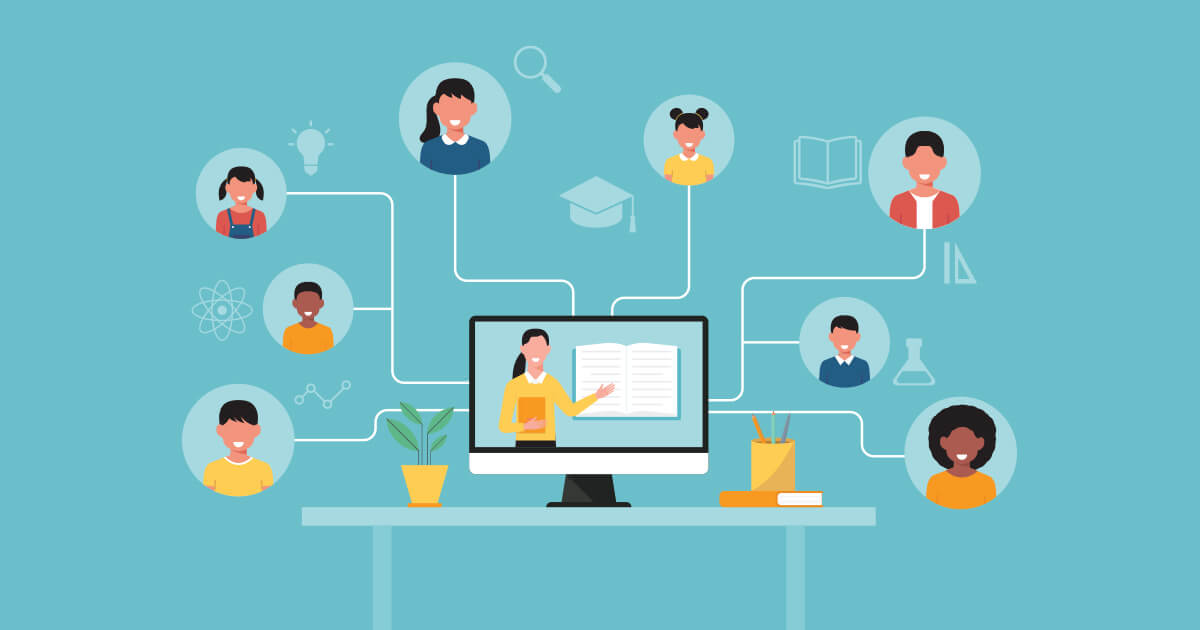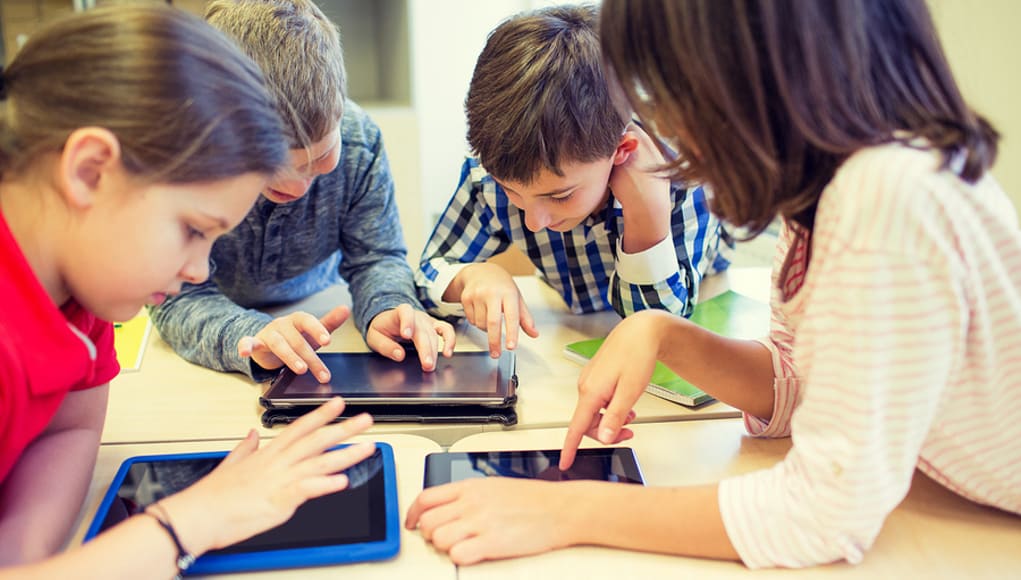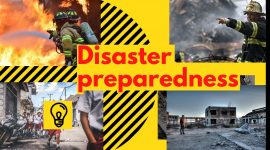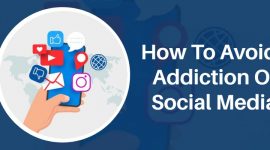Education has undergone a revolutionary transformation in recent years, driven by technological advancements, cognitive science, and a growing understanding of individual learning needs. As we navigate the fast-paced world of the 21st century, the demand for efficient learning strategies has never been greater.
This article explores the latest trends in innovative study hacks, delving into how technology, cognitive science, personalized learning, collaborative efforts, time management, creative environments, game-based learning, and continuous learning shape the education landscape.
Concepts of Study Hacks
Study hacks, in this context, refer to creative and efficient strategies that learners employ to optimize their study sessions and enhance knowledge retention. These hacks go beyond traditional methods, incorporating cutting-edge technologies, cognitive science principles, and personalized approaches to meet the diverse needs of learners.
Importance of Learning Efficiency in Today’s Fast-Paced World
In a world characterized by rapid technological advancements and information overload, the ability to learn efficiently is a valuable skill. Traditional methods of learning may not always align with the demands of a dynamic environment. Hence, exploring innovative study hacks becomes crucial for staying competitive, adapting to change, and fostering a culture of continuous learning.
Technology Integration
Use of AI and Machine Learning in Education
Adaptive Learning Platforms
Adaptive learning platforms leverage AI algorithms to tailor educational content to individual learner needs. These platforms analyze the learner’s progress and adapt the difficulty and format of content to optimize engagement and comprehension. By providing personalized learning experiences, adaptive platforms enhance knowledge retention and understanding with innovative study hacks.
AI-driven Tutoring Systems
AI-driven tutoring systems offer personalized guidance to learners, acting as virtual tutors. These systems use natural language processing and machine learning to understand the learner’s strengths and weaknesses, providing targeted feedback and additional resources.
The interactive nature of AI tutoring fosters a supportive learning environment and helps address individual learning gaps with innovative study hacks. .
Mobile Apps for Learning
Gamified Learning Apps
Gamified learning apps incorporate game elements, such as competition, rewards, and challenges, into educational content. This approach enhances engagement and motivation, making learning a more enjoyable experience. Gamified apps are particularly effective in making complex subjects more accessible and encouraging regular study habits.
Interactive Study Tools
Interactive study tools leverage touch-screen technology and multimedia elements to create engaging learning experiences. Features such as interactive diagrams, 3D models, and virtual simulations allow learners to explore concepts hands-only. These tools cater to various learning styles and enhance comprehension by providing a multi-sensory experience.
Cognitive Science and Brain Hacks
Understanding Learning Styles
Cognitive science emphasizes the importance of recognizing individual learning styles. By understanding whether a learner is visual, auditory, kinesthetic, or a combination of these, educators can tailor instructional methods to better suit their needs. This awareness forms the foundation for creating personalized and effective study plans.
Neurofeedback and Brain-Boosting Techniques
Neurofeedback involves using technology to measure and analyze brain activity, providing insights into cognitive function.
Incorporating neurofeedback into study sessions can help learners identify optimal states of focus and relaxation. Additionally, brain-boosting techniques, such as mindfulness exercises and brain games, contribute to improved concentration and cognitive performance.
Incorporating Mindfulness in Study Practices
Mindfulness practices, such as meditation and deep-breathing exercises, have been shown to reduce stress and enhance cognitive function. Integrating mindfulness into study routines promotes a calm and focused mindset, allowing learners to approach their studies with greater clarity and resilience.
Personalized Learning
Customized Learning Paths
Personalized learning paths involve tailoring educational content based on a learner’s current knowledge, skills, and goals. Adaptive algorithms and data analytics enable educators to create customized curricula that address individual learning needs. This approach fosters a sense of ownership over one’s learning journey and enhances overall engagement with innovative study hacks.
Self-directed Learning Platforms
Self-directed learning platforms empower learners to take control of their education. These platforms provide resources, assessments, and support, allowing individuals to set their own pace and focus on areas of interest. Self-directed learning encourages autonomy, critical thinking, and a lifelong love of learning with innovative study hacks.
Importance of Personalized Feedback
Effective feedback is a cornerstone of personalized learning. Timely and specific feedback helps learners understand their strengths and areas for improvement. In a personalized learning environment, feedback is tailored to individual progress, providing targeted insights that guide further study and skill development with innovative study hacks.
Collaborative Learning
Online Study Groups and Forums
The digital age has brought about a shift in collaborative learning, with online study groups and forums becoming popular platforms for knowledge exchange. Learners can connect with peers globally, share insights, and collaborate on projects. This collaborative approach enhances social learning, expands perspectives, and fosters a sense of community.
Virtual Reality for Collaborative Learning
Virtual reality (VR) takes collaborative learning to new heights by creating immersive environments for group activities. Learners can engage in virtual classrooms, conduct experiments, and simulate real-world scenarios. VR fosters collaboration and interaction, breaking down geographical barriers and creating a more inclusive learning experience.
Social Learning Platforms
Social learning platforms leverage social media dynamics to create educational communities. These platforms facilitate communication, resource sharing, and peer support. Learners can benefit from diverse perspectives, crowd-sourced knowledge, and collaborative problem-solving, making the learning process more dynamic and interactive with innovative study hacks.
Time Management Strategies
Pomodoro Technique and Variations
The Pomodoro Technique involves breaking study sessions into short, focused intervals (typically 25 minutes) followed by a brief break. This strategy helps prevent burnout and maintains high levels of concentration. Variations of the Pomodoro Technique, such as the Time Blocking method, provide additional flexibility in managing study time.
Time Blocking for Productivity
Time blocking involves allocating specific blocks of time to different tasks or subjects. This method enhances productivity by creating a structured schedule. Learners can prioritize important tasks, minimize distractions, and ensure a balanced approach to studying various subjects.
Effective Use of To-Do Lists and Task Management Apps
To-do lists and task management apps are valuable tools for organizing study priorities. Breaking down larger tasks into manageable steps and setting deadlines helps learners stay on track. Task management apps provide additional features such as reminders and progress tracking, enhancing overall efficiency.
Creative Learning Environments
Incorporating Nature in Study Spaces
Research suggests that exposure to nature can positively impact cognitive function and creativity. Designing study spaces that incorporate natural elements, such as plants and natural light, creates a conducive environment for learning. Nature-inspired study spaces contribute to improved focus, reduced stress, and overall well-being.
Ergonomic Furniture and Tools
Ergonomic furniture and tools play a crucial role in creating comfortable and healthy study environments. Properly designed chairs, desks, and accessories support good posture and reduce physical strain. A well-designed study space promotes extended periods of focused learning without compromising physical well-being with innovative study hacks.
Flexible and Adaptable Learning Spaces
Flexible learning spaces allow learners to adapt their study environments to suit different tasks and preferences. Movable furniture, adjustable lighting, and versatile layouts enable individuals to customize their study spaces. This adaptability contributes to a more dynamic and personalized learning experience with innovative study hacks.
Game-Based Learning
Educational Games for Various Subjects
Game-based learning involves using interactive games to teach and reinforce educational concepts. Educational games cover various subjects, from mathematics to language learning. These games make learning enjoyable, boost engagement, and provide immediate feedback, fostering a positive learning experience.
The Impact of Gamification on Motivation
Gamification incorporates game elements, such as points, badges, and leaderboards, into non-game contexts, including education. This approach enhances motivation, making learning more compelling and rewarding. Gamification strategies tap into the intrinsic human desire for achievement and recognition, driving sustained effort and focus.
Simulations and Role-Playing in Learning
Simulations and role-playing scenarios provide immersive learning experiences. By simulating real-world situations, learners can apply theoretical knowledge to practical contexts. Simulations enhance critical thinking, decision-making skills, and the ability to transfer knowledge to different scenarios with innovative study hacks.
Continuous Learning and Microlearning
Bite-sized Learning Modules
Microlearning involves breaking down learning content into bite-sized modules, typically lasting a few minutes. This approach accommodates short attention spans and allows learners to absorb information in manageable increments. Microlearning is well-suited for on-the-go learning and promotes continuous skill development.
Learning on the Go with Microlearning
Mobile technology has facilitated on-the-go learning through microlearning modules. Learners can access educational content anytime, anywhere, using smartphones or tablets. This flexibility accommodates busy schedules and encourages a habit of continuous learning.
Lifelong Learning Platforms and Resources
The concept of lifelong learning emphasizes the importance of ongoing education throughout one’s life. Lifelong learning platforms offer a variety of courses, resources, and opportunities for individuals to acquire new skills and knowledge. These platforms cater to diverse interests and career paths, supporting continuous personal and professional development.
Conclusion
The Future of Learning Efficiency
As technology advances and our understanding of cognitive science deepens, the future of learning efficiency holds tremendous promise.
The integration of emerging technologies, personalized learning paths, and a focus on well-being is expected to shape the way we approach education in the years to come.
Encouragement for Readers to Experiment with New Techniques
In the spirit of innovation, the article encourages readers to explore and experiment with the diverse, innovative study hacks discussed. Every learner is unique, and discovering the most effective strategies often involves a process of trial and error. By staying open to new techniques and embracing a growth mindset, individuals can unlock their full learning potential in the ever-evolving landscape of education.
The world of education is undergoing a transformative journey fueled by innovation and a commitment to enhancing learning efficiency. By embracing these latest trends in innovative study hacks, learners can not only adapt to the demands of the modern world but also foster a lifelong love of learning.
The intersection of technology, cognitive science, and personalized approaches creates a rich tapestry of possibilities, empowering individuals to navigate the intricate path of knowledge acquisition with confidence and enthusiasm.






